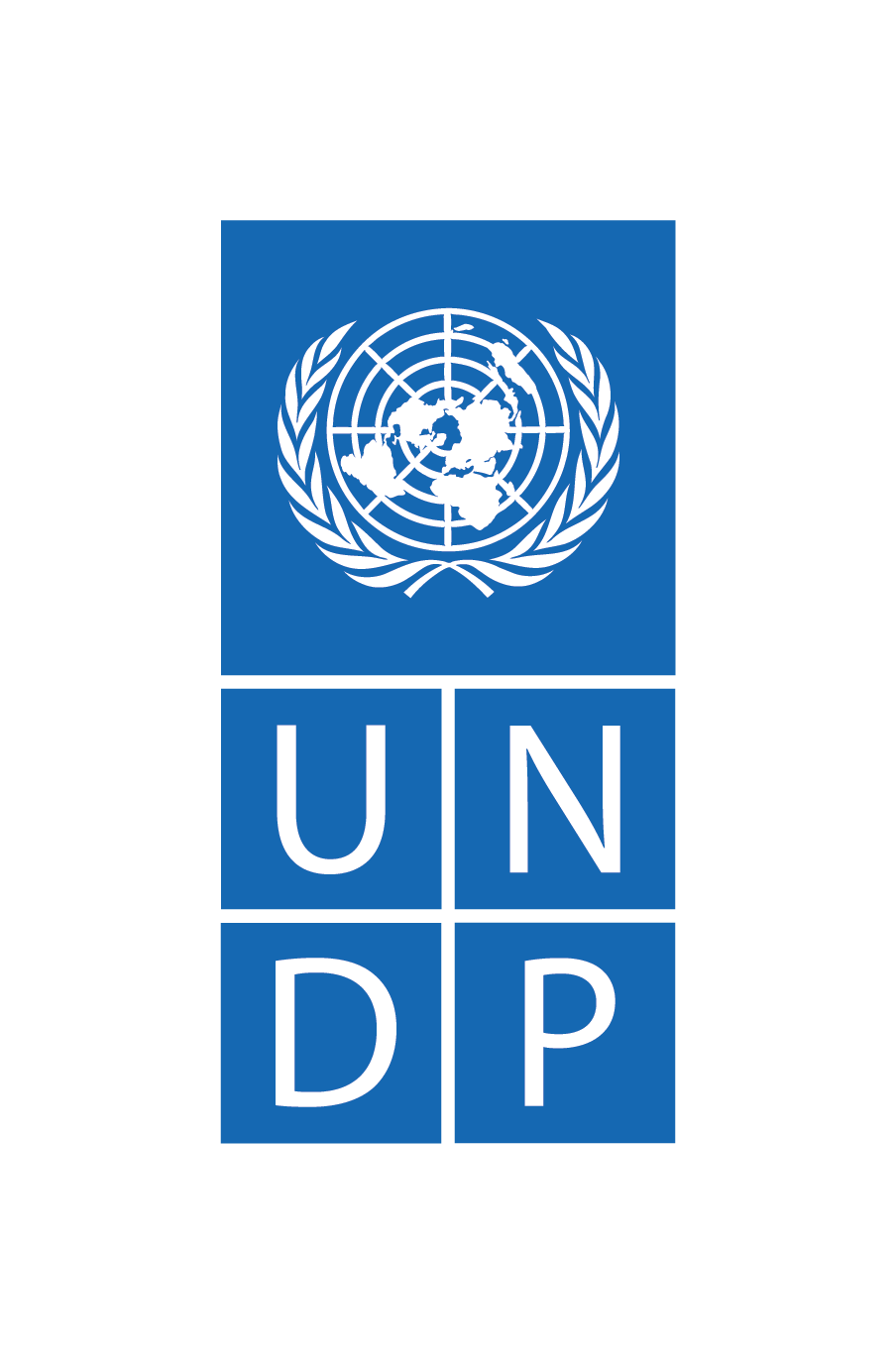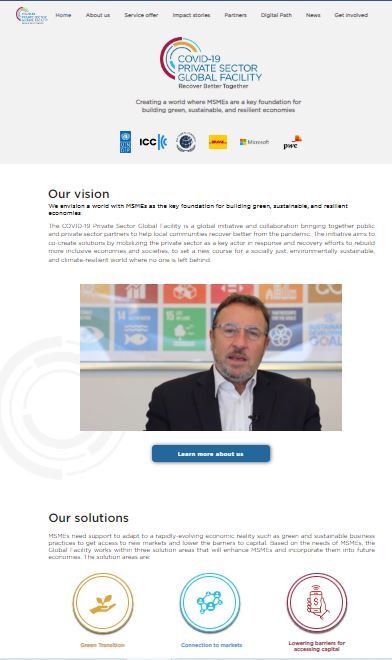Smart Facilities for health
Harnessing technological innovation and green solutions for the health system infrastructure
Purpose
Inspired by the concept of smart cities, UNDP launched “Smart Facilities” in 2016 as an initiative to integrate technological innovation and renewable energy solutions into physical infrastructure. Smart Facilities applies solutions across four interdependent technology pillars to infrastructure such as office buildings, namely 1) energy and mobility; 2) big data and the internet of things; 3) information and communications technology (ICT), business intelligence and artificial intelligence; and 4) security.
Solutions that Smart Facilities provide
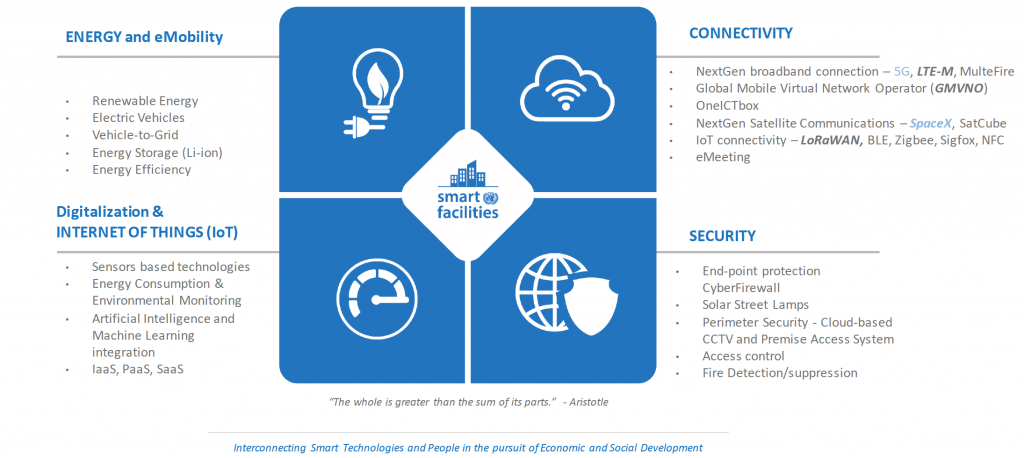
Issues that Smart Facilities seek to address
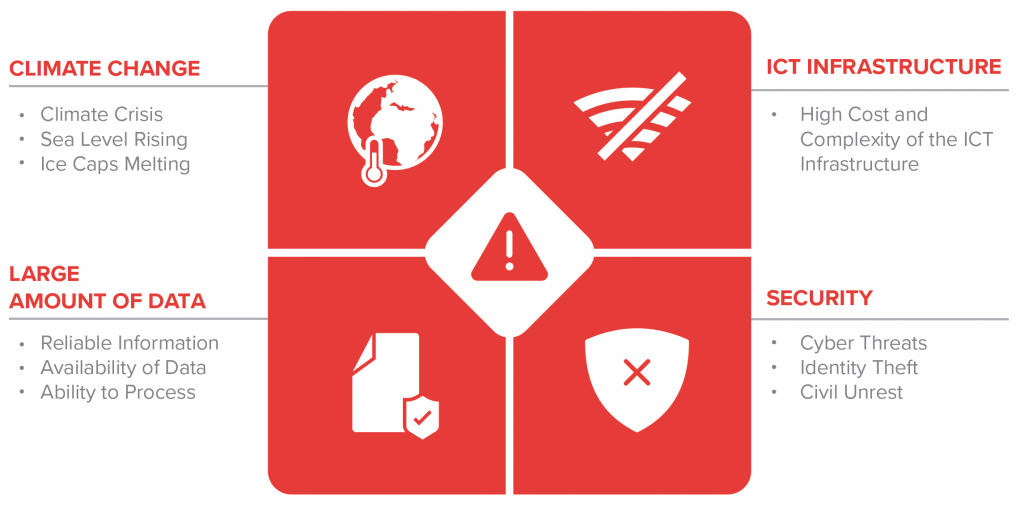
Building on lessons learned from operationalizing Smart Facilities within United Nations premises, UNDP is now working with governments, the private sector and other partners to apply the model to public sector infrastructure in a range of sectors, including health. Harnessing the power of smart technologies with the growing global need to be more energy efficient presents a key opportunity to contribute to the global decarbonization objectives of the 2030 Agenda.
The Smart Facilities model likewise offers a means to strengthen local economies. The initiative leverages local small and medium-sized enterprises for long-term sustainability of Smart Facilities and builds their technical capacities in the process. It aims to build a pipeline of local capacity to shape green, digital, new technology-driven infrastructure solutions, including a focus on youth apprenticeship.
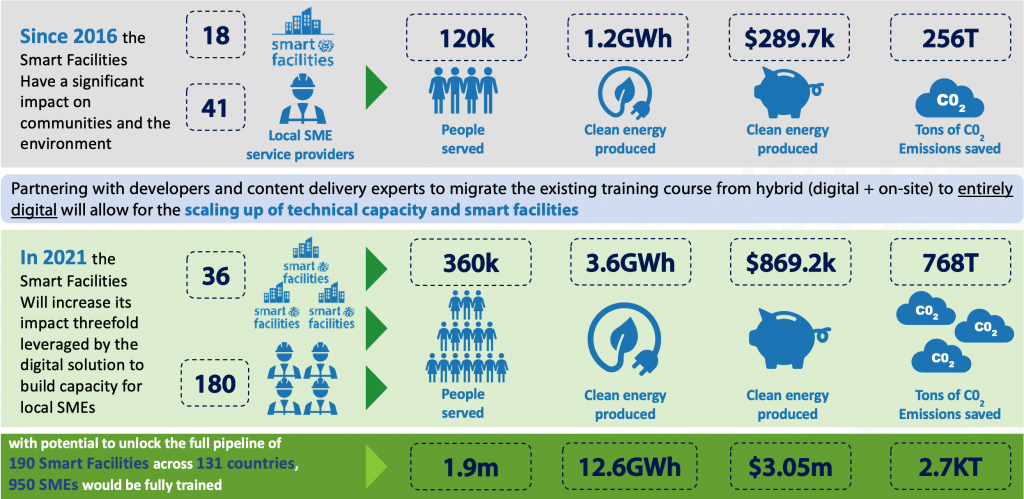
UNDP’s approach
The implementation of Smart Facilities consists of a seven-step process that has been refined over the years:
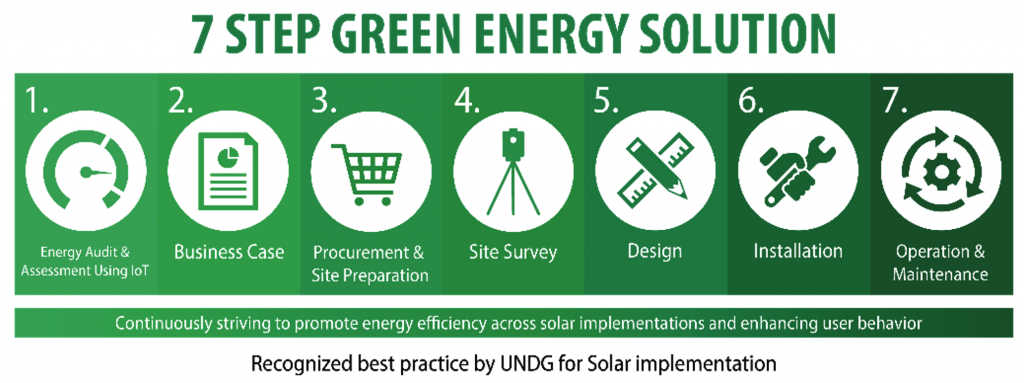
This process ensures a comprehensive assessment of the site, a well-refined process for identifying local partners, a thorough technical review, a detailed installation plan and capacity building process, and continued monitoring and reporting to identify further business opportunities.
As part of its support to COVID-19 national vaccine deployment plans, UNDP offers a number of Smart Facility solutions to strengthen vaccine distribution efforts. These solutions cut across all stages of the cold chain to complement and reinforce existing components of vaccine storage, tracking, energy sources, monitoring, and security in both mobile and stationary infrastructure. They include, for example, vehicle grid integration, satellite communications, renewable energy, logistics management information system (LMIS) mobile applications for tracking and Internet of Things (IoT) sensors for temperature monitoring.
By relying on partnerships with local small and medium-sizes enterprises, these Smart Facilities help to transform short-term vertical responses to acute crises into long-term solutions to buttress and extend health systems, including enabling digital health solutions and reaching underserved communities well into the future. As such, investment in local technical capacity lays the foundation for a new fourth Green Industrial Revolution.
UNDP continues to explore opportunities to scale Smart Facilities for health for COVID-19 response efforts and beyond.
With a focus on providing essential solutions for fixed infrastructure throughout health systems, such as health facilities, medical warehouses and laboratory and diagnostic settings, the Smart Facilities entail the application of interconnected renewable energy, internet connectivity, IoT and physical and cybersecurity elements. UNDP particularly seeks to leverage smart infrastructure solutions to build on its existing support to build more resilient and sustainable systems for health, including through its partnership with Global Fund to Fight AIDS, Tuberculosis and Malaria (Global Fund). Plans for Smart Facilities for health supported by the Global Fund are underway in Afghanistan, Djibouti, Guinea-Bissau, and South Sudan.
Key resources
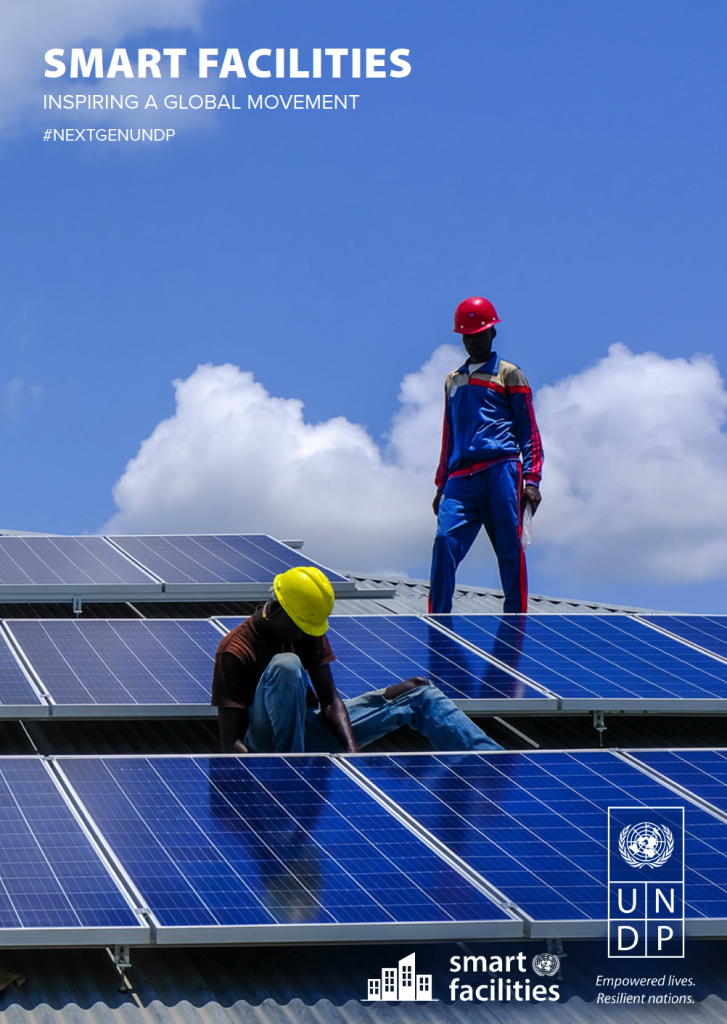
Smart Facilities: Inspiring a Global Movement
United Nations Development Programme, Smart Facilities
PDF
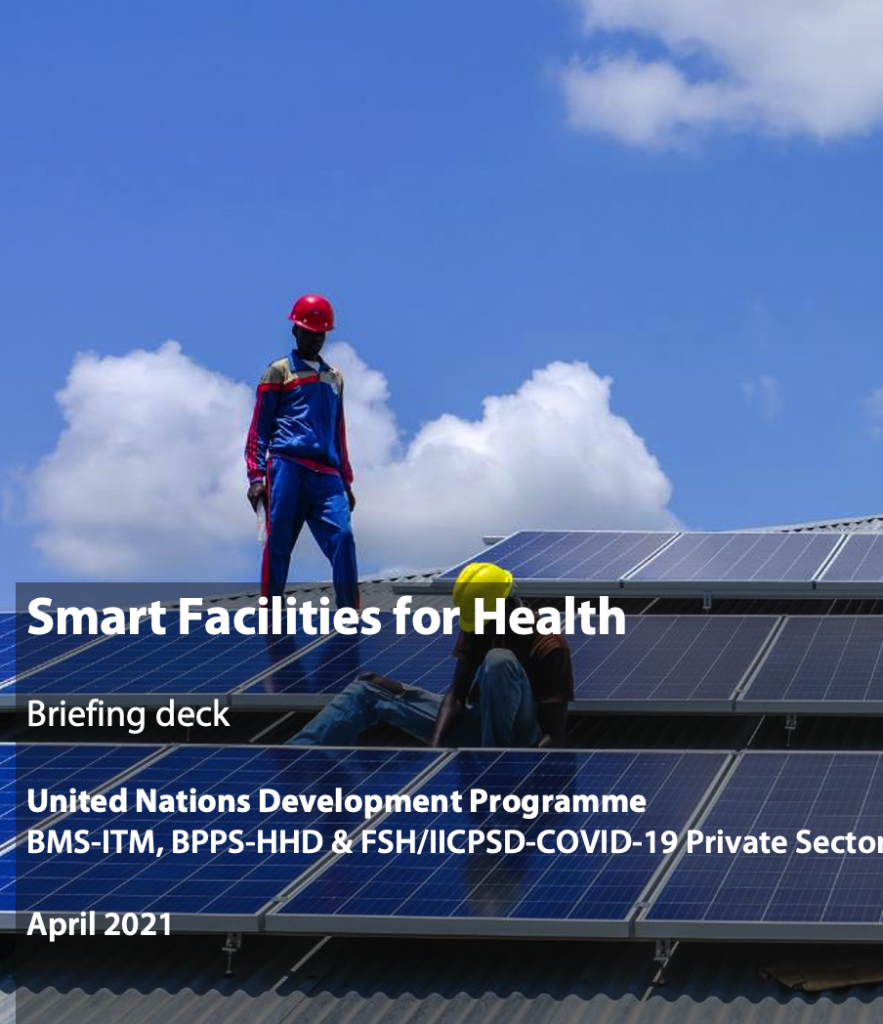
Smart Facilities for Health
United Nations Development Programme
PDF
